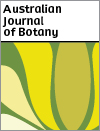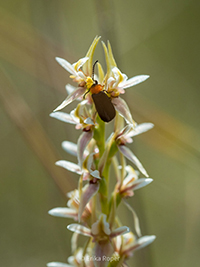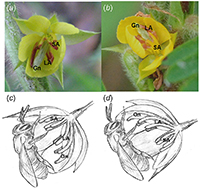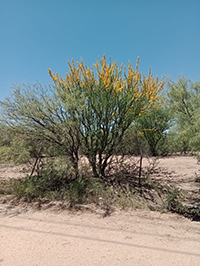Australian Journal of Botany
Volume 72
Number 7 2024
Climate change is posing a significant extinction risk to rare and restricted species. Following consultation with species’ experts, managers of the Tarengo leek orchid (Prasophyllum petilum) should address the region- or population-specific non-climate threats to increase its resilience to climate change. We present an adapted framework for incorporating climate-change adaptation into management, a critical tool for quantifying the severity of threats and assessing management actions for restricted species with highly specialised requirements. Photograph by Erika Roper.
Resupination is the movement of floral buds that leads to flowers turning upside down. We tested the reproductive functioning of this characteristic in the native legume Chamaecrista nictitans and found that it causes pollen to be deposited in particular portions of pollinators’ bodies, improving pollination. Image by Natan Messias Almeida and Paulo Estêvão Araújo Vilaça Júnior.
This study explored how Parkinsonia praecox responds to salinity and drought during germination and early growth. It found that germination was highest in distilled water but decreased with increased salinity and drought. Germination was more sensitive to drought than to salinity. Interestingly, seeds exposed to drought had better germination rates beyond −1.2 MPa compared to salt-treated seeds. This suggests P. praecox can grow in arid, saline conditions, shedding light on its geographical occurrence and distribution. Photograph by Valeria Villarreal.








